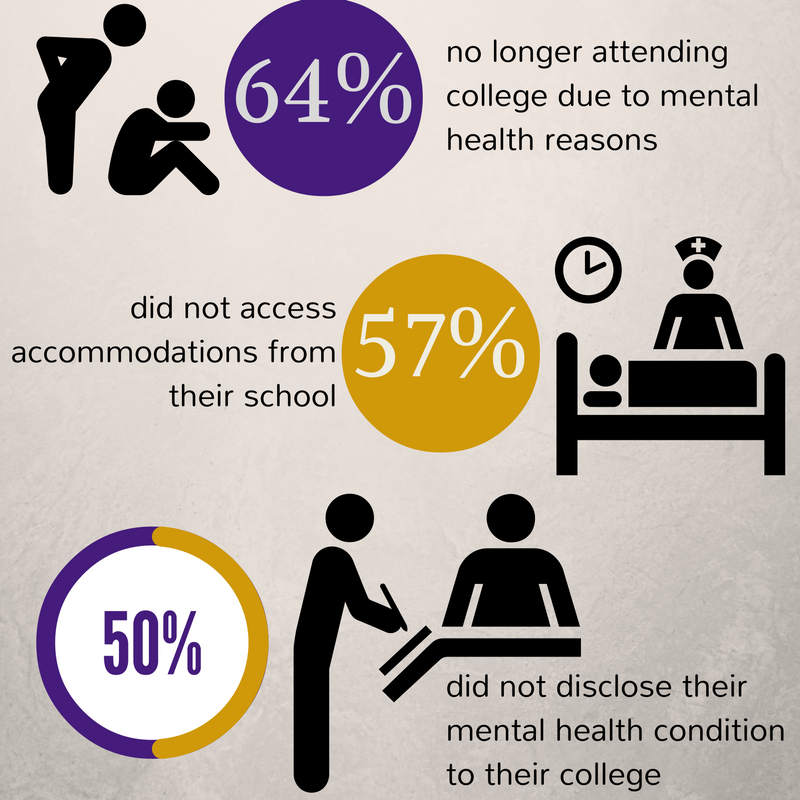Mental health is an often overlooked issue on college campuses.
According to a 2012 study by the National Alliance on Mental Illness, 64 percent of those surveyed who were no longer attending college stopped due to mental health reasons. Depression, anxiety and bipolar disorder were the top three reported diagnoses among respondents.
The University has various resources to assist students dealing with mental health issues, including the Mental Health Service of the Student Health Center, various student organizations and LSU Cares, a branch of the Office of the Dean of Students.
Dr. John Otzenberger is the Director of Mental Health at the SHC. Students should view the Mental Health Service as a University resource to be utilized, he said, rather than a place of social stigma.
“The idea of thinking about it like this [is] everybody needs a coach, and if you can approach it from that angle … it reduces that stigma of ‘Oh, there’s something wrong with me,’” Otzenberger said.
In the NAMI study, 57 percent of students surveyed did not access accommodations from their school, with two of the top five reasons being they were unaware they qualified for and had a right to receive accommodations and fear of stigma. “Stigma remains the number one barrier to students seeking help,” it said.
The SHC provides students with an initial consultation to determine the path of treatment best suited for them, which can range from three to five general counseling sessions to receiving a referral for an outpatient program or partial hospitalization.
The SHC’s Mental Health Service has 13 therapists on staff to conduct individual and group therapy to treat a wide variety of cases. The center has 17 different support groups that meet throughout the semester at the SHC.
While the Mental Health Service is by appointment-only and there is currently a month-long wait to schedule a visit, the center does have counselors on call available for anyone in crisis, which Otzenberger defines as “whatever ‘emergency’ means to you.”
Although medication can be part of the treatment process, the SHC takes a holistic approach, he said. Our generation is resilient and sophisticated when it comes to utilizing available resources, Otzenberger said.
“The wonderful thing about working with young people is you guys get better,” he said. “I think part of the college experience is learning how to take care of yourself.”
Regular exercise, eating right, limiting alcohol consumption, getting enough sleep and being socially connected to others can reduce anxiety, Otzenberger said.
Chemical engineering and economics junior Michael Denham founded the University branch of NAMI this semester. The student club serves as a college affiliate of the national organization.
Denham founded NAMI on campus to give other students a support network and improve skills for understanding mental illness. Denham stresses that having a mental illness is OK, and it’s OK for students to ask for help. Reducing the stigma of mental illness means people can get treatment much faster, he said.
“What I really wanted to do when I started NAMI on campus at LSU is to make sure we can discuss mental illness in a way that makes people feel not sad by these issues, but rather empowered,” Denham said.
The club had a compliment table at Fall Fest, hosted a group yoga class at the UREC and plans to have a “Netflix and chill” event and screen a movie pertaining to mental illness. Denham said he is working on the organization bringing a nationally recognized speaker to the University to open the dialogue on campus and encourage community conversations on mental health.
“We want to really be a mover and shaker on campus and make sure that people recognize these issues and understand that they’re not permanent things,” he said.
As the group is still in its formative stages, its membership stands at about 20-30 people. NAMI is a revamped version of the former Mental Health Awareness Club, and NAMI has some of the awareness club’s previous leadership, Denham said.
Otzenberger said the SHC’s goal is to give people the tools to deal with stress and anxiety instead of running away from them, which can cause further stress. Learning the ability to lean into these issues can reduce them, he said.
“If you have a gameplan for how to approach your stress and your anxiety in college, and you’re practicing that gameplan all the time, well, practice makes perfect,” Otzenberger said.
Studies show mental health often overlooked on college campuses
October 18, 2016
More to Discover









